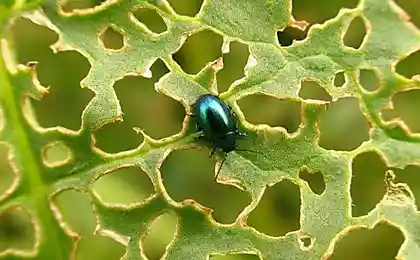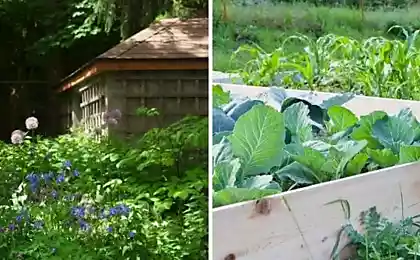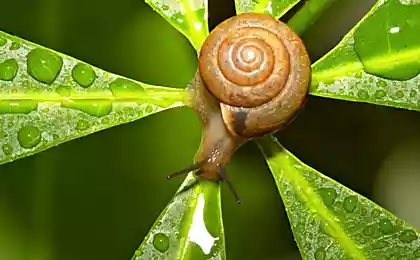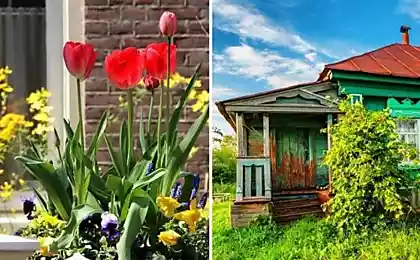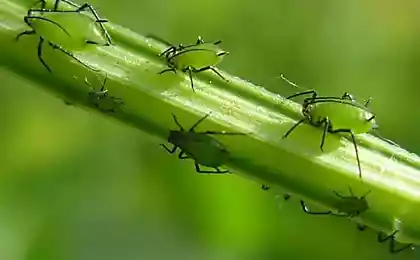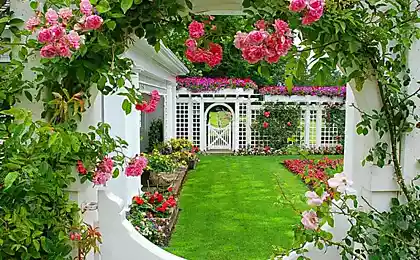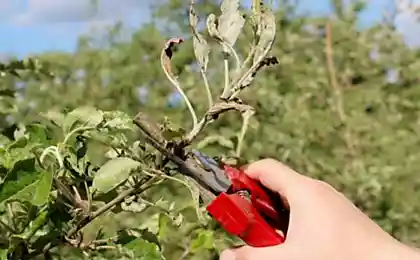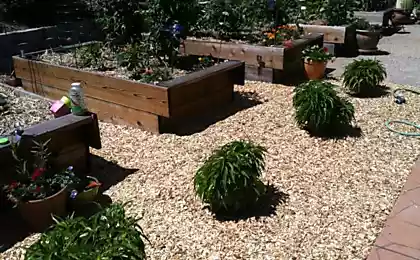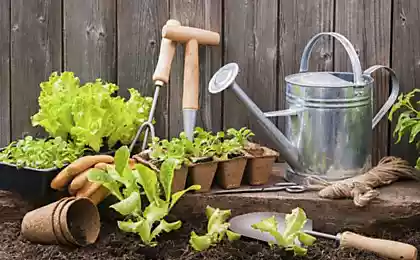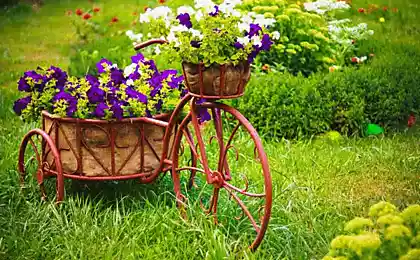213
How to get rid of aphids in the garden
Aphids are considered one of the worst pests of gardens and gardens. It is very difficult to fight it, since this pest reproduces at an amazing rate. A single female produces three generations of several hundred thousand individuals per month.
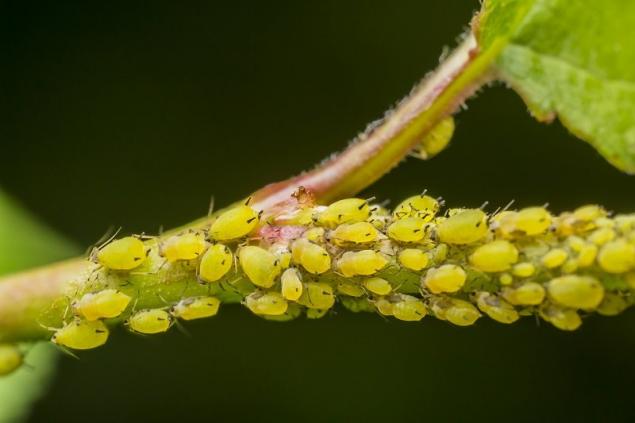
The ubiquitous aphid quickly weakens young plants, sucking their cellular juice. At the same time, it secretes poison, due to which the leaves twist, deform and die. Aphids are also able to infect plants with harmful viruses, which can lead to extensive damage and death of plantations.
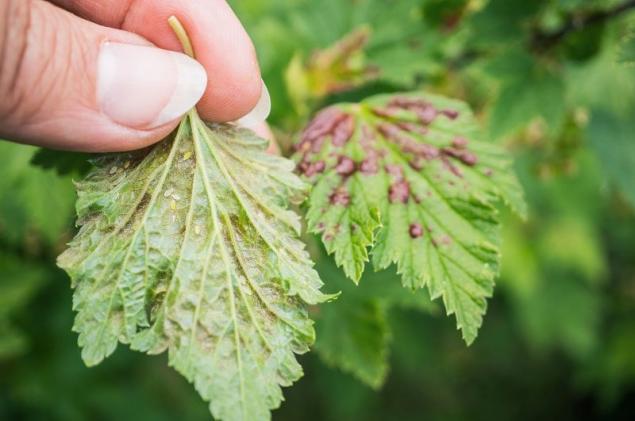
Various types of aphids are damaged vegetable, fruit, berry and flower crops. Often gardeners do not know how to cure already sick plants without poisoning the crop with insecticides.
Fighting aphids with folk remedies "Site" prepared for readers an extensive selection of folk methods of combating aphids. Scattering plants, natural enemies, infusions, decoctions and spraying: in the war for the harvest, all methods are good.
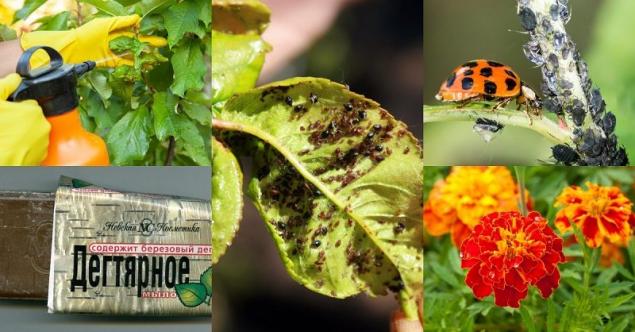
Birch tar has a strong specific smell and is an excellent tool against a variety of pests of gardens and gardens: aphids, cabbage flies, apple fermenters, ants.
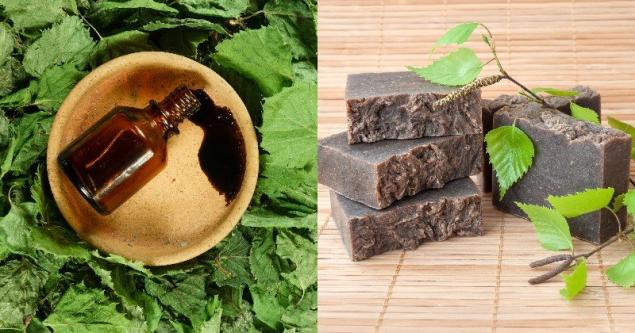
This tool is not able to kill pests and works on the principle of repellent. Concentrated aroma scares away insects and knocks them off the trail of food. As a result, they are trying to leave the area as soon as possible.
The disadvantage of this method is a short-term effect, which can prolong the addition of soap solution or ash. Use it. birch tar Very simple, you just need to be able to properly prepare the solution.
You'll need it.
Preparation
Good reviews can often be heard about another way to use birch tar - scaring belts. The trunks of fruit trees are wrapped with a wide bandage smeared with tar. This prevents ants from transferring aphids to trees not yet affected by pests.
Soap spraying Soap washing and spraying - the most simple aphidism. It does not require special costs, because household soap is found in every house.
Recipes
In order not to cause burns in plants, before the first use, check the prepared infusion on a limited area and only then, making sure of the effectiveness of the product, treat the entire site.
Recipes
Suitable spraying equipment
There are plants that scare away aphids with their phytoncides. Planting them on the site, you can reduce the number of pests in the garden and garden. The sharp smell of basil affects the olfactory receptors of aphids, therefore it serves as a natural repellent.

The aphid also does not tolerate the smell of garlic, onions, lavender, mint, mustard, velvets. A number of plants, on the contrary, attract aphids to themselves, distracting from fruit crops. It's nasturtia, petunia, cosmea, cleoma, poppy and beans.
The worst natural enemy of aphids is a ladybug. Huntingly eat aphids also beetles, riders, predatory bugs.
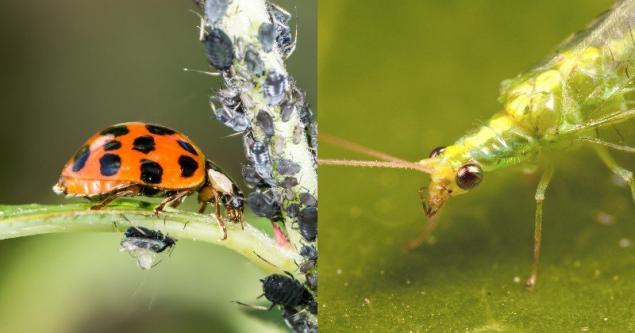
Enemies of aphids are earwigs, gold-eyed and murmurers, which can be lured into the garden, growing mustard, dill, cumin, daisies, violets.
The birds serve as food for many small birds. They willingly eat the pest of sparrows, foams, tits, kings, robins, hemp. To attract feathered assistants, you can hang birdhouses and feeders on the site.

This is not a complete list of folk remedies that you can use in the fight against aphids. Use your favorite recipe and share the results in the comments. Good luck and a generous harvest!
In the fight against mosquitoes, all means are good! Thanks to these beautiful plants, you can safely enjoy warm summer evenings on your site without worrying about annoying bloodsuckers. These are just the best plants to give!
Plants that grow better together help each other get nutrients, attract beneficial insects for pollination or control pests are called companion plants. Tomatoes, for example, like the neighborhood of carrots, dill and basil, and the neighborhood of potatoes is harmful.
From June to the frost we are pleased with their sunny petals bright and unpretentious velvets, or Chernbrivtsy. According to the totality of useful properties, these modest flowers can be called golden. Few people know that velvets are the most valuable medicine, protect garden plants from pests, are widely used in cooking and cosmetology.

The ubiquitous aphid quickly weakens young plants, sucking their cellular juice. At the same time, it secretes poison, due to which the leaves twist, deform and die. Aphids are also able to infect plants with harmful viruses, which can lead to extensive damage and death of plantations.

Various types of aphids are damaged vegetable, fruit, berry and flower crops. Often gardeners do not know how to cure already sick plants without poisoning the crop with insecticides.
Fighting aphids with folk remedies "Site" prepared for readers an extensive selection of folk methods of combating aphids. Scattering plants, natural enemies, infusions, decoctions and spraying: in the war for the harvest, all methods are good.

Birch tar has a strong specific smell and is an excellent tool against a variety of pests of gardens and gardens: aphids, cabbage flies, apple fermenters, ants.

This tool is not able to kill pests and works on the principle of repellent. Concentrated aroma scares away insects and knocks them off the trail of food. As a result, they are trying to leave the area as soon as possible.
The disadvantage of this method is a short-term effect, which can prolong the addition of soap solution or ash. Use it. birch tar Very simple, you just need to be able to properly prepare the solution.
You'll need it.
- 10-15g birch tar
- 50 g of household soap (or tar soap)
- 10 liters of water
Preparation
- Soap on a large grater.
- Dilute the tar and soap in 10 liters of water.
- Thoroughly mix the solution and use to spray infected aphids of plants with a sprayer. It is better to do this in the evening hours.
Good reviews can often be heard about another way to use birch tar - scaring belts. The trunks of fruit trees are wrapped with a wide bandage smeared with tar. This prevents ants from transferring aphids to trees not yet affected by pests.
Soap spraying Soap washing and spraying - the most simple aphidism. It does not require special costs, because household soap is found in every house.
Recipes
- Dilute 300 grams of household soap in 10 liters of water. You can replace solid soap with liquid, then you need only 125 milliliters per 10 liters of water.
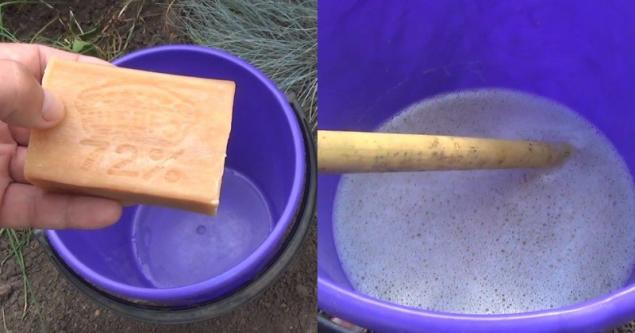
- Dilute 100 grams of tar soap in 10 liters of water.
- Dilute 250 grams of ash in 10 liters of water. Boil the solution for 30 minutes, before spraying add 40 grams of household soap.
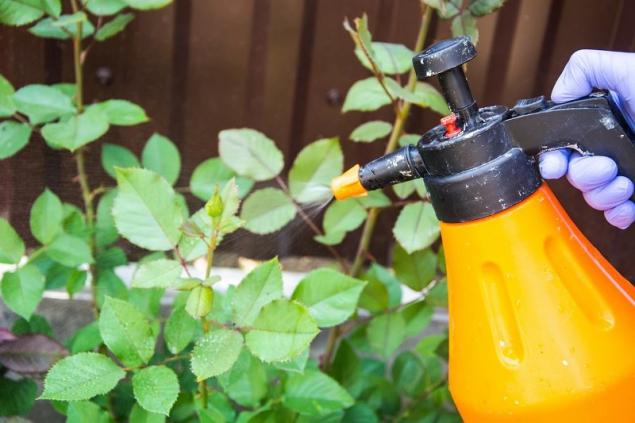
In order not to cause burns in plants, before the first use, check the prepared infusion on a limited area and only then, making sure of the effectiveness of the product, treat the entire site.
Recipes
- Onion
Finely chop 30 grams of onions. Insist in a liter of water for 5 hours. You can add husks.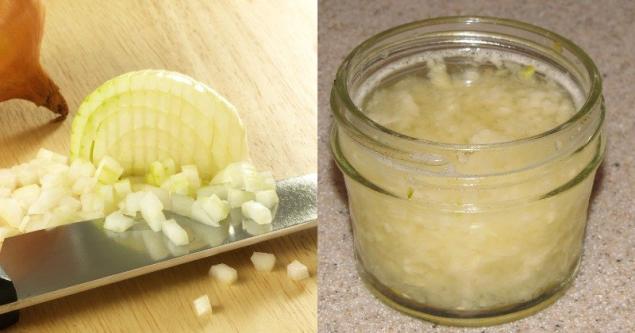
- Garlic
Insist 200 grams of crushed garlic in a liter of water. Before applying dilution 25 milliliters of infusion in 10 liters of water. - Chamomile
Insist 100 grams of inflorescences of pharmacy chamomile in a liter of water. Spray the plants with this solution: 1 part infusion, 3 parts water and 4 grams of soap per liter. - Dandelion infusion
3-4 hours insist 400 grams of leaves and 200 grams of roots of flowering dandelions in 10 liters of water. - Velvet infusion
Half a bucket of crushed plants with flowers pour water to the top and insist for 2 days. Strain, add 40 grams of soap. - Pepper
Insist 1 kilogram of fresh or 300 grams of dry hot pepper pods in 10 liters of water. Before applying dilution 1 part infusion in 10 parts of water.
Suitable spraying equipment
- Vodka
Put on a bottle of the cheapest vodka sprayer - and the product is ready! They say it works flawlessly, but I would try a small plot first. - Milk and iodine
About how to defeat aphids with milk and iodine, we have already told earlier. In addition to aphids, this composition is suitable for combating fungal diseases (phytofluoro, powdery dew).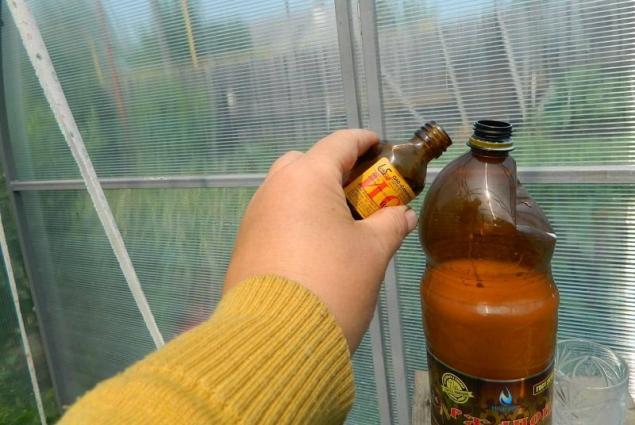
There are plants that scare away aphids with their phytoncides. Planting them on the site, you can reduce the number of pests in the garden and garden. The sharp smell of basil affects the olfactory receptors of aphids, therefore it serves as a natural repellent.

The aphid also does not tolerate the smell of garlic, onions, lavender, mint, mustard, velvets. A number of plants, on the contrary, attract aphids to themselves, distracting from fruit crops. It's nasturtia, petunia, cosmea, cleoma, poppy and beans.
The worst natural enemy of aphids is a ladybug. Huntingly eat aphids also beetles, riders, predatory bugs.

Enemies of aphids are earwigs, gold-eyed and murmurers, which can be lured into the garden, growing mustard, dill, cumin, daisies, violets.
The birds serve as food for many small birds. They willingly eat the pest of sparrows, foams, tits, kings, robins, hemp. To attract feathered assistants, you can hang birdhouses and feeders on the site.

This is not a complete list of folk remedies that you can use in the fight against aphids. Use your favorite recipe and share the results in the comments. Good luck and a generous harvest!
In the fight against mosquitoes, all means are good! Thanks to these beautiful plants, you can safely enjoy warm summer evenings on your site without worrying about annoying bloodsuckers. These are just the best plants to give!
Plants that grow better together help each other get nutrients, attract beneficial insects for pollination or control pests are called companion plants. Tomatoes, for example, like the neighborhood of carrots, dill and basil, and the neighborhood of potatoes is harmful.
From June to the frost we are pleased with their sunny petals bright and unpretentious velvets, or Chernbrivtsy. According to the totality of useful properties, these modest flowers can be called golden. Few people know that velvets are the most valuable medicine, protect garden plants from pests, are widely used in cooking and cosmetology.





